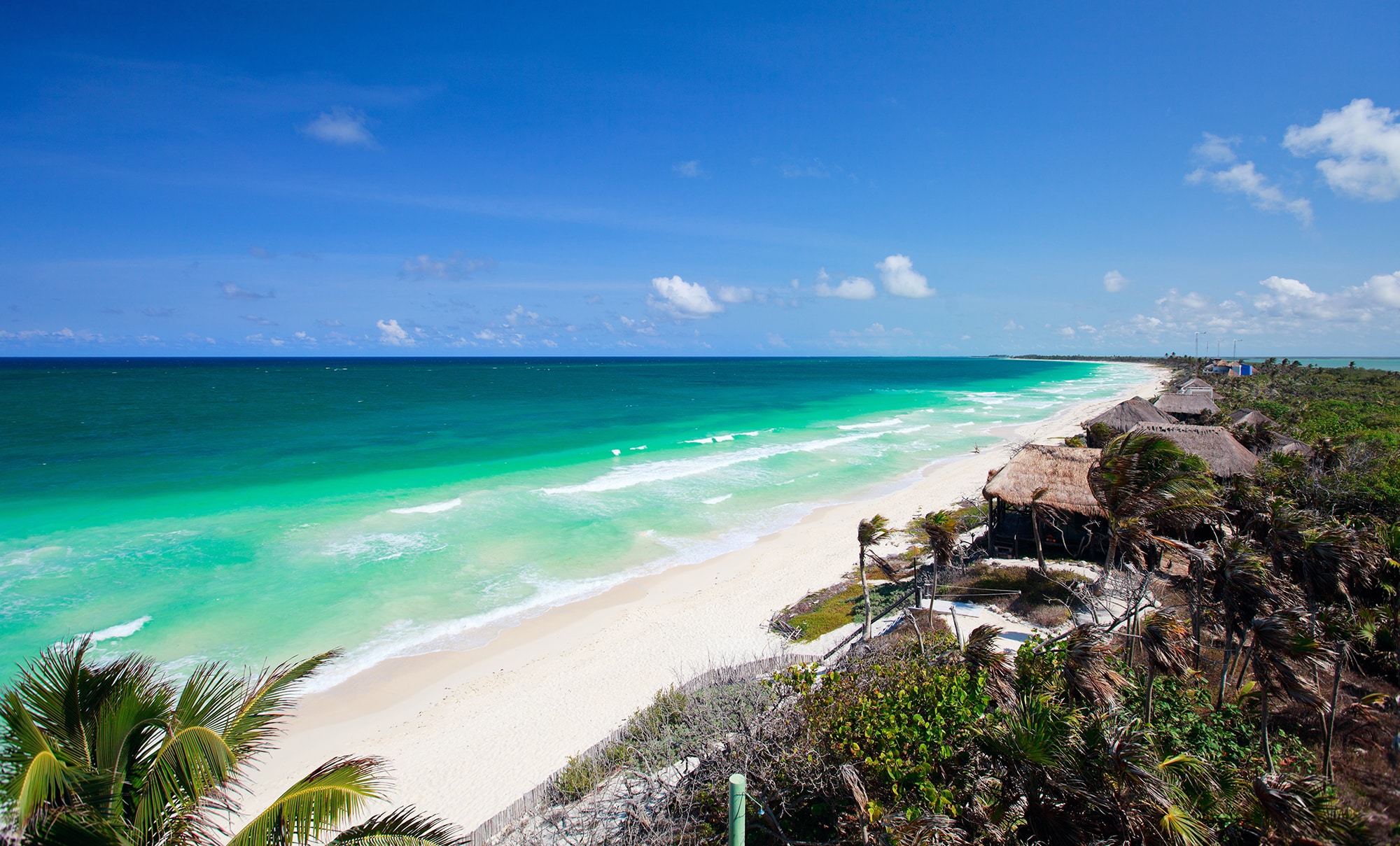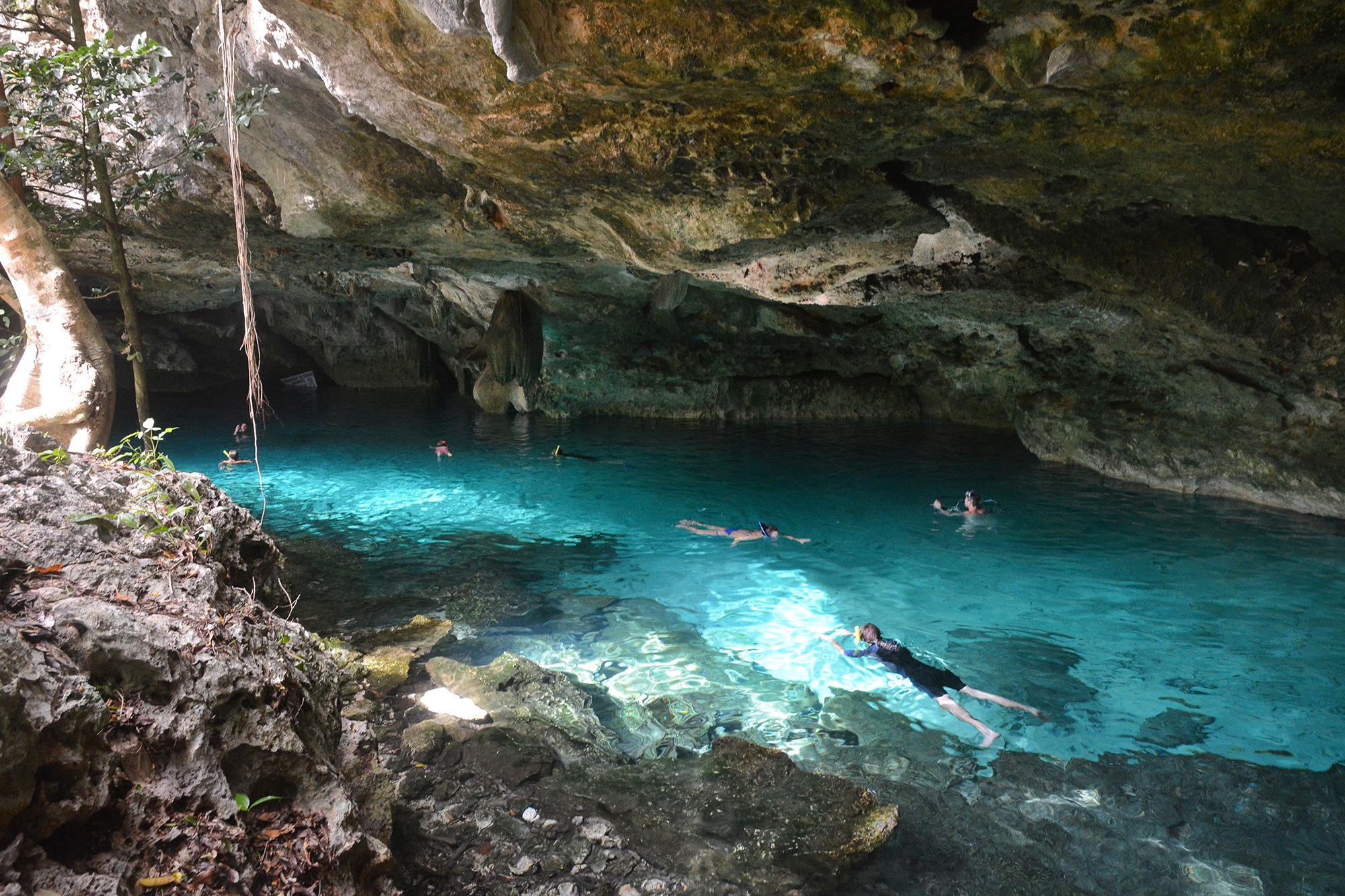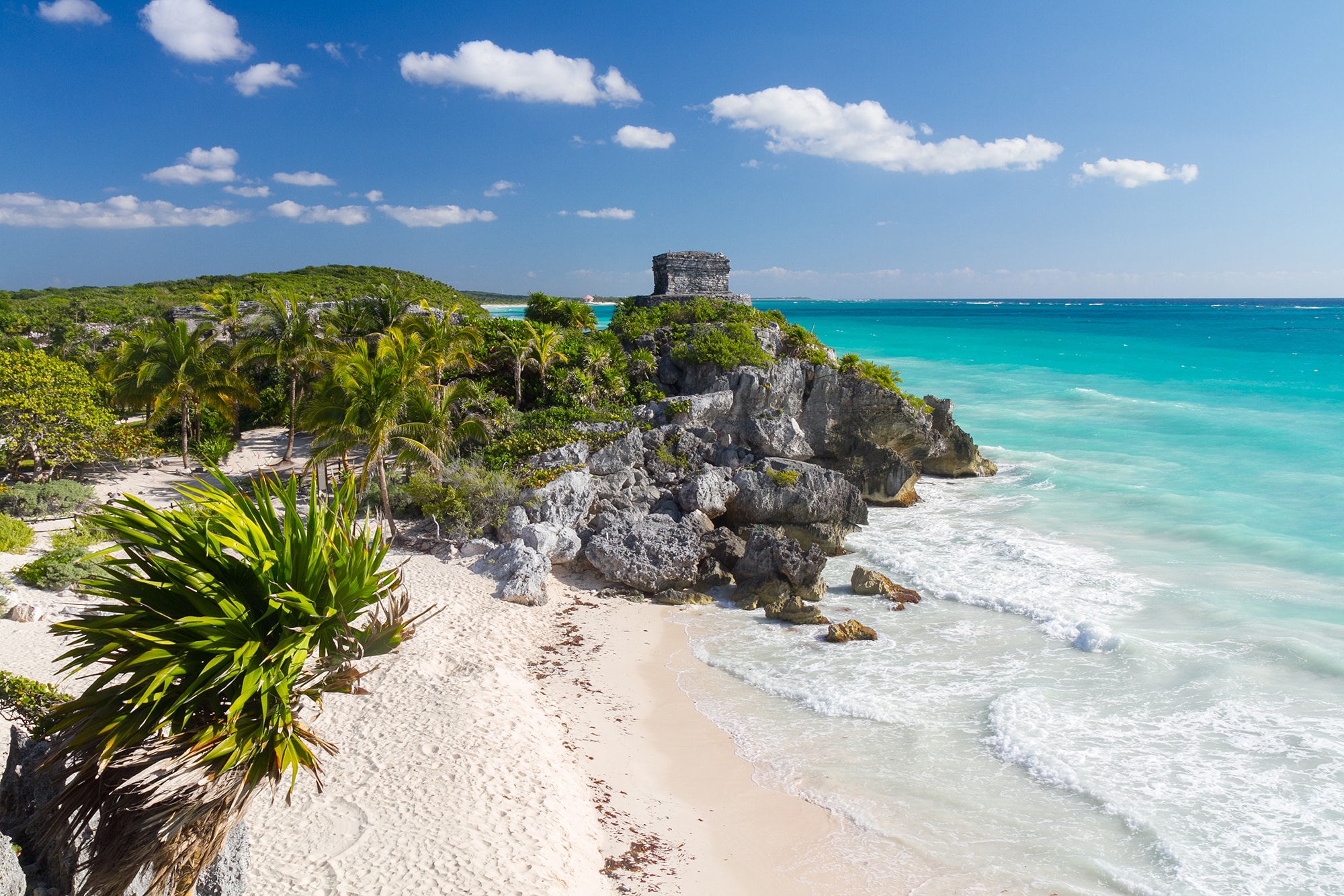How To Move To Tulum, Mexico
Considering retiring in Mexico? Tulum is a great place to move.
We may receive a commission on purchases made from links.
Tulum is the fastest growing town in Latin America, and for good reason: It's equal parts beach town and international melting pot. Unlike other American expat hubs that lean toward an us-and-them vibe, Tulum is a much more eclectic community composed of Americans, Canadians, Europeans, South Americans and Australians. Central to it all is a health-minded consciousness: Eco-resorts, yoga, juice bars and the like are incredibly easy to find. No wonder it's so up and coming. Here is what you need to know to make the move.
What jobs can I find?
The easiest job to get is the one you already have. For many expats, the transition to Tulum simply involves switching Internet providers. "I get 100 percent of my clients through the Internet," says Margo Guenther, a Tulum-based massage therapist.
Granted, Guenther has to then provide a physical service — although she also offers Skype pain-management counseling sessions. "A therapist friend travels once a month to where she used to live to see her clients, but otherwise works from Tulum," says Guenther.
In her circle, she also counts a music-industry lawyer, a blogger and an import-exporter as friends. All three conduct the majority of their work online, supplemented with three or four business trips a year. If you don't already have a gig you can make mobile, try real estate or tourism. Both are booming.
Where do I buy groceries?
Guenther recalls that 10 years ago, she trekked to Playa del Carmen, an hour's drive away, to fetch butter for the seafood restaurant she was then running. "Now, I can get everything, including gluten-free cornmeal and organic almond milk, no problem," she says.
Credit that in part to the big-box stores ushered into the once-sleepy town and its surroundings. Playa del Carmen has a Home Depot and Wal-Mart, and Cancun, a Costco.
Will online retailers deliver?
You bet. This year, Amazon.com.mx opened, widening online shopping options for Tulum locals. Beyond Amazon, many other retailers will also ship to the town. There is one catch, however.
"I don't have an address on my house," says Guenther. "I see the postman all the time on his motorcycle, but he never has anything for me."
Mexico's postal system may seem overly complicated by American standards. It involves a grid-like system, noting the streets your house lies between. But you can bypass it.
"I am very confident that everything I buy will be sent to me, because I rely on the address of a local travel agency," says Guenther of the company she routes all deliveries to. "It's called Savana Travel, and it makes a lot of our lives better."
What are the health care options like?
"If time was an issue, I'd start at the private local hospital here in Tulum," says Gunter. "Otherwise, for anything serious, I'd go to Playa. Their hospitals have marble countertops — they look much more like high-end resorts than hospitals. Also, overall, healthcare in Mexico is much cheaper than in the States."
How do I move with pets?
Two pets can move with you to Tulum. Furry travelers need duplicate copies of a health certificate, as well as proof of vaccination against rabies and distemper. Provided their paperwork is sound, no quarantine is necessary.
How do I move my belongings?
Guenther chose not to ship furniture, but instead, bought locally. "An armoire that you'd pay $2,000 for in the States costs $500 here, and it'll be handmade from hardwood," she says. "It's really good quality — and that way, you're helping local people."
What is the average cost of a home?
The average three-bedroom home in Tulum will set you back between $200,000 and $300,000. To break that figure down, Raminta Lilaite, who works for Riviera Maya Property Consultants, estimates the average cost per square foot at $580. For an apartment, that price drops to $510.
"The price per square foot is much lower in Tulum than elsewhere in the Caribbean because we can use local materials, such as zapote wood, local stones and the like. We don't need to import much, and the costs of labor in Mexico are low, so that saves a lot."
What are the regulations to buy land?
There are two ways to buy property in Mexico. "One is to establish a bank trust, called a fideicomiso," says Lilaite. Pick this route, and the bank — such as HSBC, Citibank or Scotia Bank — acts as your trustee. "You maintain full control over the trust; you will be able to lease, sell or pass the property on to heirs," says Lilaite. "It's very straightforward."
The other option is to establish a Mexican corporation, but this route is not for those looking for a personal property, but, rather, better suits those looking to buy and rent condos. One thing to note is that scoring oceanfront property is unlikely. Hotels and resorts have snatched up nearly the entirety of the town's Caribbean coast. What little remains often does not have a legit title. "We recommend that people not buy on the ocean if a title isn't available," says Lilaite. "The title is the most important thing that anyone buying in Mexico should look for."


